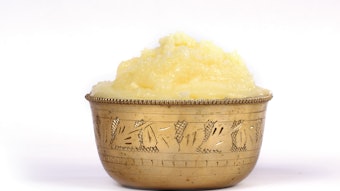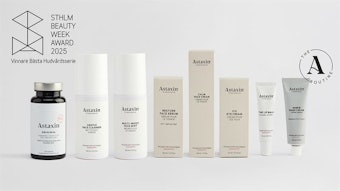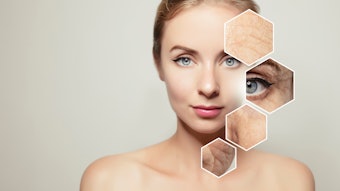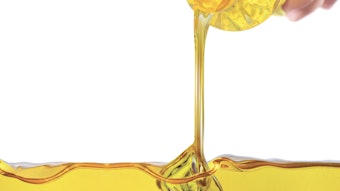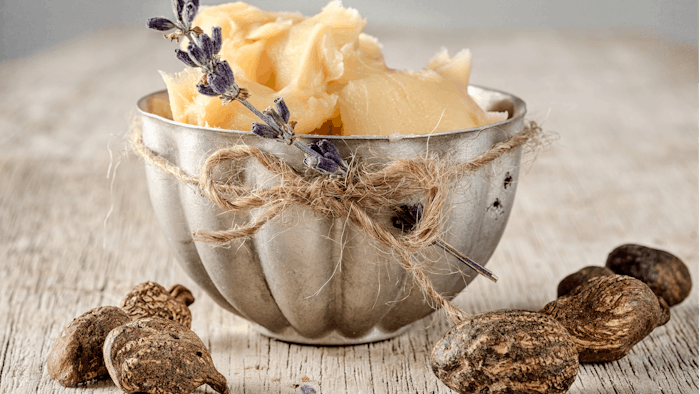
Shea butter is a commonly used ingredient in beauty—from skin care to hair care, color cosmetics and soaps. Its history traces back to Cleopatra, who reportedly used the ingredient in ancient Egypt. An article from Allure breaks down what the ingredient is and why it is in so many beauty products.
Related: Vitamin C Alternative for Sensitive Skin
Although it is used almost exclusively in the West as an ingredient in beauty products, shea butter can also be used to cook with. In skin care, the multiuse balm acts as a rich emollient that can soften skin without being greasy due to its vitamins A, E, and F content, according to cosmetic chemist Ginger King.
Shea butter is also commonly found in hair care products for its ability to smooth damaged cuticles and reduce breakage while also moisturizing the scalp, according to cosmetic chemist Kelly Dobos.
A 2017 study published in the Journal of Clinical and Aesthetic Dermatology, states shea butter makes hair more resistant to breakage and has been found to create a significant gloss increase.
Shea butter can be used on its own, but it is typically unstable and usually grayish in color with an earthy smell, so it's unlikely any consumer product would present shea butter on its own. And while it's technically a tree nut, there has been no medical evidence that those with tree nut allergies cannot use shea butter and it is considered safe for all skin types.

